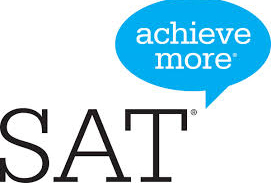New SAT to look more like ACT, Common Core

SAT standardized testing
April 15, 2014
Proposed changes to the SAT standardized test would shift the focus of the assessment to better reflect the Common Core and subjects that students learn in high school. The changes would not be put into effect until 2016 and won’t immediately affect the way Kent State educates future teachers.
During the announcement in late March about the proposed changes, David Coleman, president and CEO of The College Board, which owns the SAT, said the test has become disconnected from the work of high school students. In order to correct this problem, Coleman proposed making changes that would make the SAT more like the ACT.
According to educationplanner.org, the SAT is used to predict what a student is capable of learning and might not test what students have learned in high school. In contrast, the same education planner site said the ACT measures what students already know and tests them on material they should have learned in high school.
Coleman became president of the College Board in 2012 after helping develop the Common Core, a set of standards stating what a student should know in language arts and mathematics before passing each grade. Coleman said his goal was to change the SAT to better reflect those standards when he first became president in 2012.
Associate Director of Admissions Mark Ledoux said the changes would not affect the admissions office of Kent State for another year or so.
“Right now, the SAT and ACT are two very different tests,” Ledoux said. “The SAT measures aptitude as apposed to achievement. The ACT is more of a measure of how much of the college prep curriculum that a student has mastered.”
Ledoux said the proposed changes sound like College Board is bringing the SAT more in line with how much of the Common Core the student has achieved or mastered.
Anthony Milano is a sophomore communication studies major who took the ACT at a nearby high school. He said the SAT was not advertised or promoted for his high school class to take, most likely because the SAT is not necessary for many U.S. colleges.
“To be honest, I’m not even sure how the SAT is scored or what effect these changes will have,” Milano said.
William Kist, an associate professor of teaching, learning and curriculum at Kent State, specializes in preparing students to teach grades 7-12.
“I would say the SAT is pretty low on our priority scale,” Kist said. “Teachers now have to be more concerned with the Common Core and the different tests that kids have to take at the high school level, not so much the SAT.”
Sophomore fashion merchandising major Rachel Broadstone said she took only the ACT in high school and said most of her classmates did the same.
“The few people I know from high school who took the SAT took it because they were going out of the state for college,” Broadstone said.
Joanne Arhar, the associate dean of the College of Education, Health and Human Services on campus, said it is unknown how officially the SAT changes will affect EHHS yet.
“In education, our students are very much driven by tests and grades,” Arhar said. “How the SAT changes will affect us, I don’t know yet. That’s something we’re going to have to study.”
Ledoux and Arhar said the coming years will show what kind of effect the forthcoming SAT changes will have on the university and the entire Common Core system.
Contact Julia Sprowls at [email protected].
























